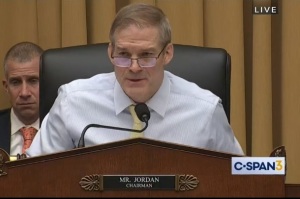Cancer Cure: New Experimental Treatment Using Patient's Immune System Shows Promising Results
The medical world is one step closer to finding a cure for cancer, as a new type of treatment utilizes a cancer patient's own immune system against the life-threatening illness.
According to CBS Pittsburgh, the new type of treatment has shown promising results.
Emma Collins, 16, and Kashaun Lawhown, 7, have benefited from the experimental treatment. Both patients were suffering from leukemia, and neither chemotherapy nor radiation had worked on them.
"The immune system has developed over many, many billions of years to actually get rid of things that don't belong in the body, cancer doesn't belong there," said Dr. Stephan Grupp, Director of Immunotherapy at The Children's Hospital of Philadelphia, according to CBS.
The treatment is conducted by collecting white blood cells from the patient. The T-cells from those collected are then reprogrammed to attack cancer cells. They are then put back into the patient's body. This form of treatment essentially has the patient's own immune system working against the disease.
Pharmaceutical companies from all over are now moving swiftly to develop the best and most effective immuno-oncology therapies. According to The Telegraph, companies from the United Kingdom, the United States of America, Switzerland and Germany are all working toward a solution.
Countless patients from all over the world have already received first generation immuno-oncology treatments. The therapy is also noteworthy for producing fewer side effects.
"It is the biggest breakthrough in oncology R&D for 20 years, possibly even since chemo," said Stuart Farrow, director of biology at Cancer Research UK's commercial arm Cancer Research Technology, according to the publication.
However, the experimental treatment is not exactly foolproof. There are still some gaps to be filled and not all of the tested patients have been responsive. Additionally, the therapy does not apply to all forms of cancer.
Regardless, immuno-oncology is still a promising area worth exploring when it comes to cancer treatments. Scientists are reportedly surmising that, in five years, 60 percent of all cancers may be addressed via different drug combinations.




























